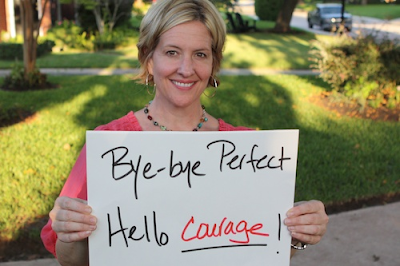Listening to Shame
Shame shapes us. The shame we carry with us every day influences our thoughts, our actions, and our decisions. And no one is talking about it.
Shame is the fear of disconnection. Shame is what holds us back when we think “I’m not pretty enough.” or “I’m not rich enough.” or “I’m not smart enough”. If our reason for being here on Planet Earth is to connect with others, then we need to really be seen to make connections, and underpinning that is excruciating vulnerability. If we believe that we are not worthy of that connection for whatever reason (not ___ enough), our shame controls us.
Personally, I’ve spent a lot of time thinking about why I am the way I am, why certain things rub me up the wrong way, why I feel anxiety at seemingly ‘easy’ times, why I worry about people liking me, why I battle an unhealthy self-image, struggle with my weight, feel a particular way about relationships and my worth… and I’ve not figured it out just yet, but I’m getting closer.
During Brené’s 6 years of research, she discovered that the only difference between people who have a strong sense of love and belonging and those who don’t is the belief that they are (or aren’t) worthy. In her TED talk, she divulges the common traits of people who believe they are worthy, who live wholeheartedly: the courage to be imperfect, the compassion to be kind to themselves first (& then to others) and connection as a result of authenticity. Lastly, they fully embraced vulnerability.
Brené opened my eyes to the idea that vulnerability is a positive thing. Her talks indicate that all the good things in your life grow from vulnerability, and so we should not shy away from it. Brené’s research, which she undertook to avoid vulnerability, proves that it is essential to wholehearted living. We’ve all heard the advice: “it won’t be easy, but it’ll be worth it”. We’ve been told (& have experienced, perhaps) that most beautiful moments, the times you grow the most, the most rewarding times in life are born from challenge. If we are to undertake challenges, we are making ourselves vulnerable.
Vulnerability is not knowing the outcome but doing it anyway. Vulnerability is being your truest self with no care for what people may think. To be vulnerable is to be open to failure, as well as success. For my whole life, I’ve been ashamed to be vulnerable. I thought weakness & vulnerability were synonymous. But they’re not! Through being vulnerable, you build strength, you improve, you LIVE fully.
In Brené’s video on Listening to Shame, she illustrates this by asking the audience how many people watching TED Talks see the vulnerability of TED speakers as courage. She goes on to define vulnerability as “the most accurate measure of courage”, which is beautiful and I agree with her. There is nothing more inspiring than watching someone push him/herself to be great.
The Man in the Arena is a portion of a speech by Theodore Roosevelt, and has its place in Brené’s talk. Most notably, she uses it to point out that our biggest critic (99% of the time) is us.
It’s important to understand the difference between guilt and shame. Shame is focused on the self, whereas guilt is a reflection of our behavior. Guilt is “I’m sorry. I made a mistake. Shame is “I’m sorry. I am a mistake.” Shame is a cause of addiction, bullying, suicide etc. whereas data shows that guilt is inversely correlated with those kinds of things. Of course, guilt helps us to measure what we’ve done against who we want to be, but shame is that voice telling us that we are never good enough. I love how Brené describes shame for women - it’s so real! She says that for females, shame is the pressure we feel to “do it all, do it perfectly, and never let them see you sweat”. For men, it’s never wanting to be perceived as weak.
We all feel it. We all experience shame. If we didn’t, we’d be sociopaths. So how can we deal with shame? How can we be ‘comfortably’ vulnerable?
There is not one specific way, as far as I can tell, but I think we should start by remembering that we are all connected. That we are all battling something or other. That we can rely on each other. That we are not alone. We should remember to be kind to ourselves & courageous in our authenticity. We can take the emotional risk & the exposure that comes with being vulnerable to become connected in our imperfections. We can listen to our shame, be aware of when it raises its ugly head, and remind ourselves how debilitating it is. A good trick I use is one I learnt in The Subtle Art of Not Giving a Fuck: write down your shameful thought (be kind to yourself) and categorize it according to your values and metrics. Why is X important to me? What is the underlying value? Why am I measuring it like this? If it’s not helping you, chuck it. (More on that life-changing book another time.)
If this all sounds really amazing to you, and you’re on board with not letting your shame define you, I recommend watching Brené Brown’s TED Talks, as well as her future. She is a very clever woman!
Here’s the excerpt from Teddy Roosevelt’s speech if you’re interested:
The Man in The Arena
It is not the critic who counts; not the man who points out how the strong man stumbles, or where the doer of deeds could have done them better. The credit belongs to the man who is actually in the arena, whose face is marred by dust and sweat and blood; who strives valiantly; who errs, who comes short again and again, because there is no effort without error and shortcoming; but who does actually strive to do the deeds; who knows great enthusiasms, the great devotions; who spends himself in a worthy cause; who at the best knows in the end the triumph of high achievement, and who at the worst, if he fails, at least fails while daring greatly, so that his place shall never be with those cold and timid souls who neither know victory nor defeat.



Comments